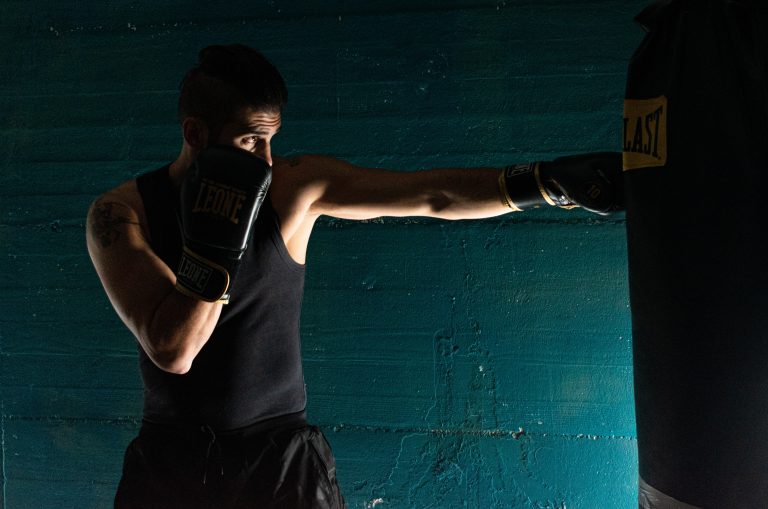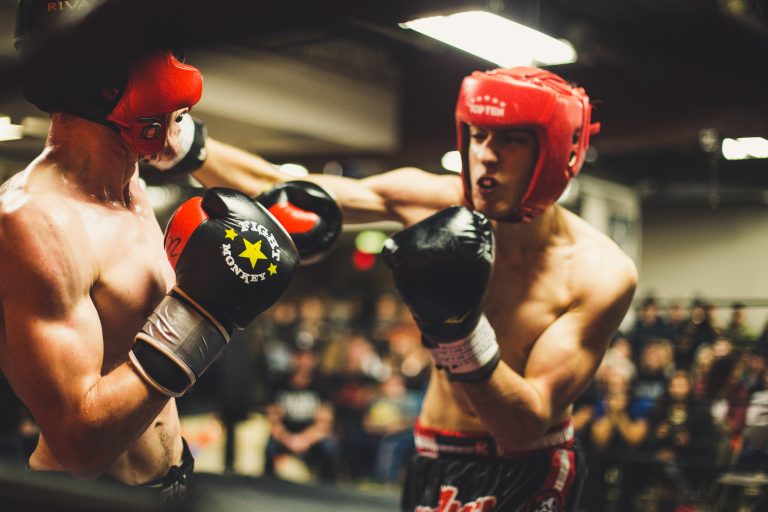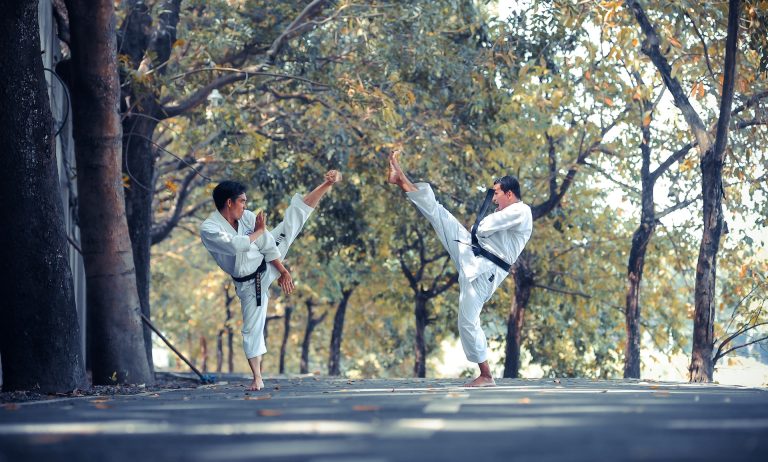Kann man auch Karate ohne einen Lehrer lernen?
Karate ist eine Kampfkunst, die seit mehr als 2000 Jahren ausgeübt wird. In den letzten Jahrzehnten ist es im Westen immer populärer geworden und viele Menschen versuchen heutzutage, Karate selbst oder in einer Gruppe zu lernen. Viele Menschen stellen sich die Frage, ob man Karate ohne einen Lehrer lernen kann. In diesem Blog werden wir uns dieser Frage näher widmen.
Wie wird Karate normalerweise gelernt?
Karate wird normalerweise in einem traditionellen Dojo unterrichtet, das von einem erfahrenen Lehrer geleitet wird. Dieser Lehrer lehrt Kata (Vorbereitungsformen), Kumite (Kampf) und Bunkai (Anwendung der Techniken). Er gibt dem Schüler die nötige Anleitung, um die Techniken richtig zu verstehen und anzuwenden. Der Schüler muss auch die Etikette und das Verhalten im Dojo lernen.
Was ist, wenn man keinen Lehrer hat?
Es ist möglich, Karate ohne einen Lehrer zu lernen, aber es ist nicht sehr effektiv. Ohne den direkten Zugang zu einem Lehrer kann es schwierig sein, die richtigen Techniken zu lernen und zu verstehen. Auch wenn man Videos oder Bücher über Karate liest, kann man nicht die direkte Anleitung bekommen, die man braucht, um die Techniken richtig zu erlernen.
Gibt es Alternativen?
Ja, es gibt Alternativen. Eine Möglichkeit ist es, an einem Seminar oder Workshop teilzunehmen. Viele Dojos bieten Seminare und Workshops an, in denen man einige Techniken lernen kann. Auch viele Karate-Meister, -Lehrer und -Lehrerinnen bieten Seminare und Workshops an, die man über das Internet finden kann. Auf diese Weise kann man von einem erfahrenen Lehrer lernen und gleichzeitig viel über die Grundlagen von Karate erfahren.
Eine weitere Möglichkeit ist es, Karate durch das Online-Lernen zu lernen. Es gibt viele Websites, die Online-Kurse und -Videos anbieten, in denen man die Grundlagen von Karate lernen kann. Diese Kurse sind oft ausführlich erklärt und der Lehrer bietet Unterstützung durch Videos oder E-Mails.
Eine weitere Alternative ist es, andere Karateka oder Dojos in der Nähe zu finden und sich mit ihnen zu treffen, um zu üben und sich gegenseitig zu helfen. Dies ist eine sehr effektive Möglichkeit, um vom Wissen anderer zu profitieren und gleichzeitig seine Fähigkeiten zu verbessern.
Fazit
Es ist möglich, Karate ohne einen Lehrer zu lernen, aber es ist nicht sehr effektiv. Eine bessere Alternative ist es, an Seminaren oder Workshops teilzunehmen oder Online-Kurse zu belegen. Man kann auch andere Karateka oder Dojos in der Nähe finden, um gemeinsam zu üben und voneinander zu lernen. Auf diese Weise kann man sicherstellen, dass man die richtigen Techniken richtig versteht und anwendet.
Frequently Asked Questions about Learning Karate without a Teacher
Karate is one of the most popular types of martial arts in the world. With its origins in Okinawa, Japan, it has become a sport that has gained immense popularity among practitioners and enthusiasts all over the globe. However, due to various reasons such as location, finances, and time constraints, some Karate enthusiasts might not have the opportunity to learn Karate from a teacher or in a dojo. In this blog post, we will answer some of the most frequently asked questions about learning Karate without a teacher.
Can I Learn Karate on My Own?
Yes, it is possible to learn Karate on your own. There are many online resources, books and DVDs that can help you learn and practice Karate at home. However, learning Karate without a teacher has its disadvantages. A teacher will be able to correct your technique, provide feedback, and tailor training to your individual needs. Learning on your own might lead to inadequate training, improper technique and form, and even injury.
What Are the Pros and Cons of Learning Karate on My Own?
Pros:
- Flexibility in terms of scheduling and location
- More control over your training and pace
- Less expensive than traditional classes
Cons:
- Difficult to assess your progress and technique without feedback from a teacher
- No access to partner training, which is essential in learning Karate
- Higher risk of injury due to improper technique and form
What Are the Most Important Things to Keep in Mind When Learning Karate on My Own?
When learning Karate on your own, there are several things you should keep in mind:
Start with the Basics: Before moving on to more advanced techniques, make sure you have mastered the basics such as stances, strikes, and kicks.
Study the Fundamentals: Study Karate principles and techniques to gain a better understanding of the art form.
Find a Training Partner: Find a friend or family member who is willing to train with you to practice techniques and moves.
Record Yourself: Recording your technique and form can help you identify areas that need improvement.
Get Feedback: Seek feedback from other Karate practitioners, especially those who have more experience than you.
Are There Any Specific Resources I Can Use to Learn Karate on My Own?
Yes, there are several resources available online that can help you learn Karate on your own. Here are some examples:
YouTube: YouTube has a wealth of instructional videos, demos, and tutorials that cover various aspects of Karate training, techniques, and forms.
Books and DVDs: There are also a variety of books and DVDs available that cover different aspects of Karate training.
Online Courses: Online courses from reputable institutions or instructors can be helpful in learning Karate on your own.
Can I Learn Karate on My Own and Still Be Able to Fight?
While learning Karate on your own is possible, it is not advisable if you want to learn to fight effectively. Karate is a discipline that involves not just technique but also sparring and partner drills. It is difficult to learn these aspects of the art form without proper instruction and practice with partners. Furthermore, martial arts training should be approached with a focus on self-improvement and discipline, not just on winning fights.
Conclusion
Learning Karate on your own is possible, but it has its drawbacks. Partner training and feedback from a teacher are essential in mastering the art form properly. However, if you are unable to attend classes, online resources can be helpful if approached with caution and supplemented with feedback and guidance from experienced Karate practitioners.
Inhaltsverzeichnis






